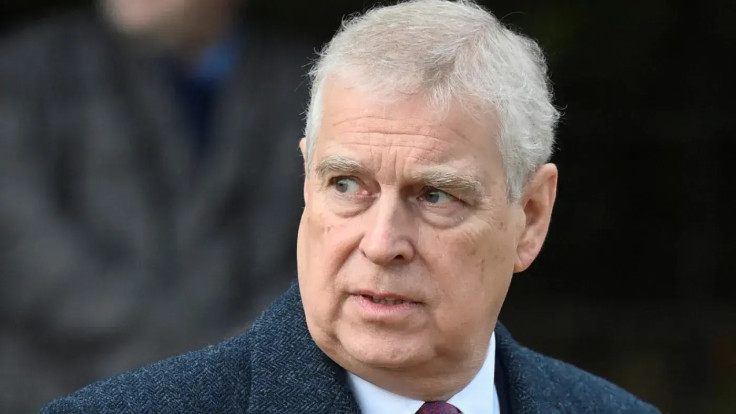What Happens To Prince Andrew's Fortune Now He's Been Stripped Of His Royal Title?
Inside Prince Andrew's net worth and personal assets

The fall from favour of Prince Andrew has raised a pressing question: what happens to his fortune now that he's been stripped of the royal honours that once defined his public standing? Once a working royal with a high profile public role, Andrew finds himself going through a completely changed financial and reputational status. The implications reach beyond titles and public duty as his income streams, lifestyle and obligations all face new scrutiny and criticism.
Why Andrew's Title Was Taken Away
It has been years now that Andrew's association with the late American financier Jeffrey Epstein had been a shadow on his public role. Although the late Queen Elizabeth II stripped Andrew of his military titles and royal patronages in January 2022, the decisive step came in late October 2025 when his brother, King Charles III, initiated a formal process to remove Andrew's style, titles and honours, including his use of 'Prince'. The tipping point appears to reportedly have been newly surfaced evidence that contradicted Andrew's prior account of his relationship with Epstein. The palace stated that:
'His Majesty has today initiated a formal process to remove the Style, Titles and Honours of Prince Andrew,' they added, 'Prince Andrew will now be known as Andrew Mountbatten Windsor.' Furthermore they said, 'Their Majesties wish to make clear that their thoughts and utmost sympathies have been, and will remain with, the victims and survivors of any and all forms of abuse'
The move was not just symbolic, but represented a formal distancing of Andrew from the royal front line. His privileges, responsibilities and public persona were fundamentally altered.
Prince Andrew's Net Worth and Assets
Before this title removal, Andrew's financial status was relatively smaller by royal standards, but remains under question even now. Some sources in 2025 place his net worth at around £3.7 million (approximately $5 million). Moreover, much of his income once came from allowances tied to his royal duties. For instance, an investigation found that over the last 40 or so years he received nearly £13 million to fund his royal work as per reports. His assets include a long-term lease of the Royal Lodge at Windsor Great Park, where he has resided under reportedly favourable terms despite its massive market value. Furthermore, his reported investments include international commercial dealings in China and the Gulf States and other private ventures established while he held trade envoy roles. However, various reports cast doubt on the full picture of his finances, raising questions about how he sustains significant living and security costs relative to his disclosed net worth. Even the palace noted reportedly,
'His lease on Royal Lodge has, to date, provided him with legal protection to continue in residence. Formal notice has now been served to surrender the lease, and he will move to alternative private accommodation. These censures are deemed necessary, notwithstanding the fact that he continues to deny the allegations against him,'
What Happens to Prince Andrew's Finances Now
With his royal role drastically reduced, the financial mechanics around Andrew are changing. He is no longer receiving the support and allowances that once helped stabilise his lifestyle, and his ability to rely on the institution is narrowing each year. This big shift brings even more criticism to one of the most controversial parts of his financial picture, which is the long-term lease he holds on the Royal Lodge. Reports further revealed that Andrew paid £1 million for the lease and has since paid only what the agreement describes as 'one peppercorn' in rent each year 'if demanded'. Moreover, he was required to invest £7.5 million in refurbishing the property, a project completed in 2005 and confirmed in a National Audit Office report.
Furthermore, it had long been assumed that he paid a nominal rent of £260,000 a year in addition to the refurbishment requirement, but the lease shows that the higher rent applied only if the renovation work was not completed. Since it was, he has effectively paid no rent at all. When the total £8.5 million outlay that he did pay is spread across the 75 year lease, the cost averages around £113,000 per year, which as per reports is well under half the property's estimated market rent.
This financial arrangement sits at the centre of the questions now surrounding Andrew's future, since the end of royal support means he must shoulder more of the property's maintenance and security costs himself. Further reports suggest that annual private allowances from the royal family, once believed to be around £1 million, have ceased, creating a gap Andrew must now fill from his personal wealth. The loss of his titles and the distancing of the palace also weaken the prestige-based networks that previously offered him opportunities and informal avenues of income. Several private business interests associated with him have reportedly paused or severed ties, and the long-term sustainability of his household depends increasingly on assets that are less liquid and more expensive to maintain than they may appear. The transition marks a turning point in which Andrew's lifestyle and obligations must be supported not by the monarchy but by his own resources, leaving him with a financial landscape that is more exposed and less forgiving than at any previous point in his public life.
© Copyright IBTimes 2025. All rights reserved.





















